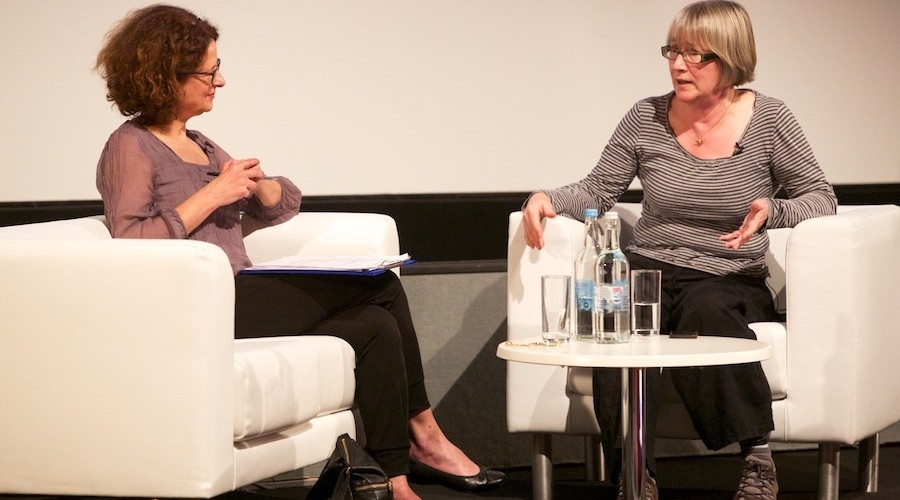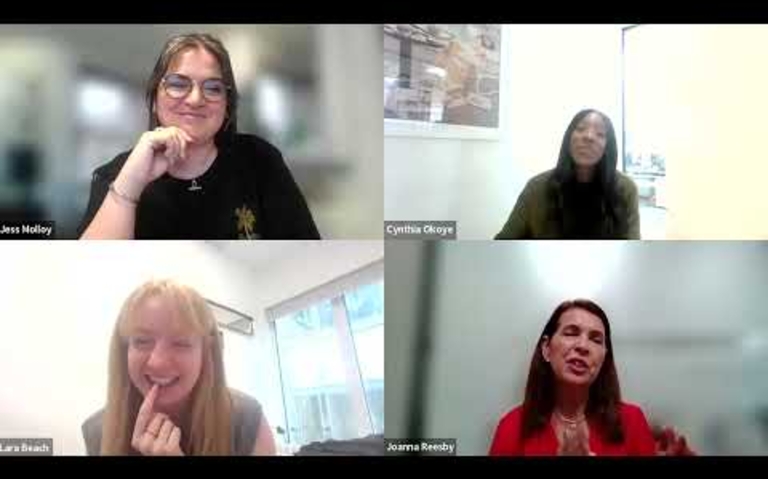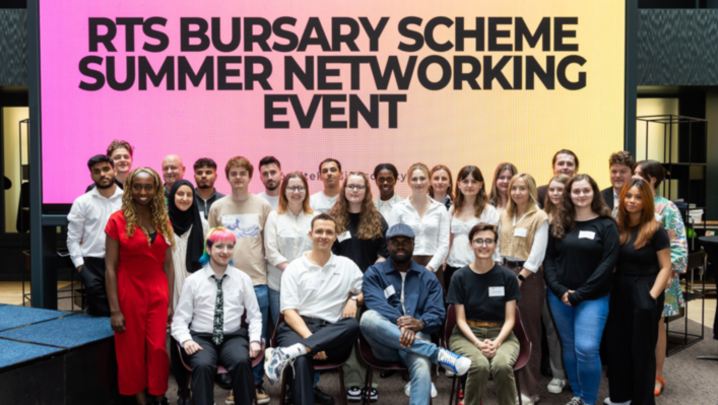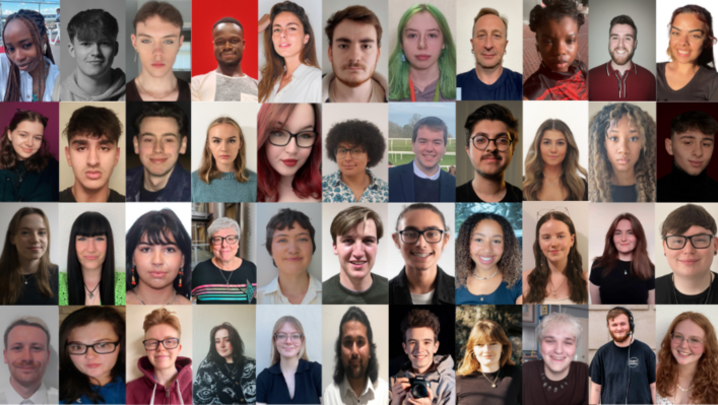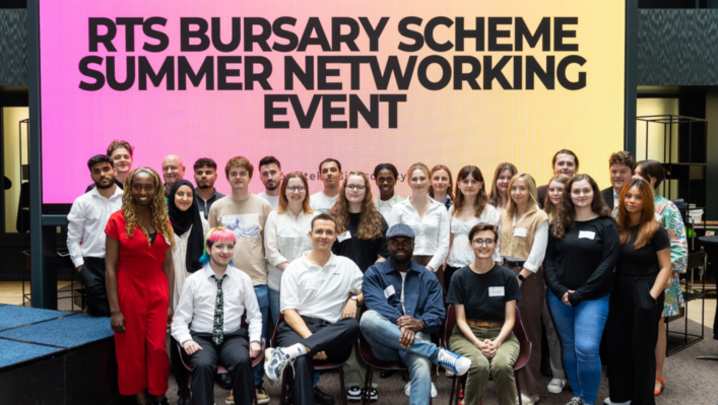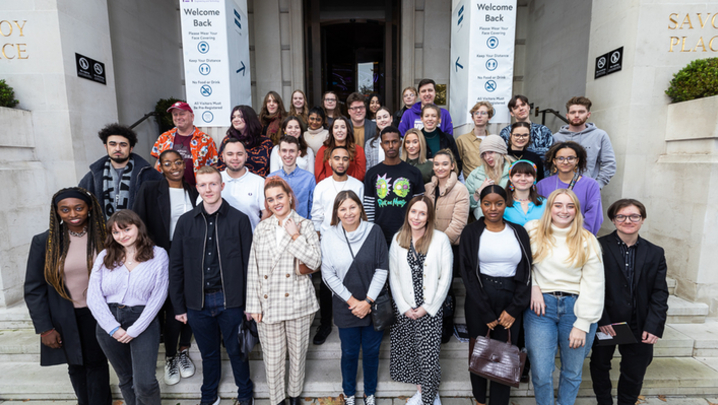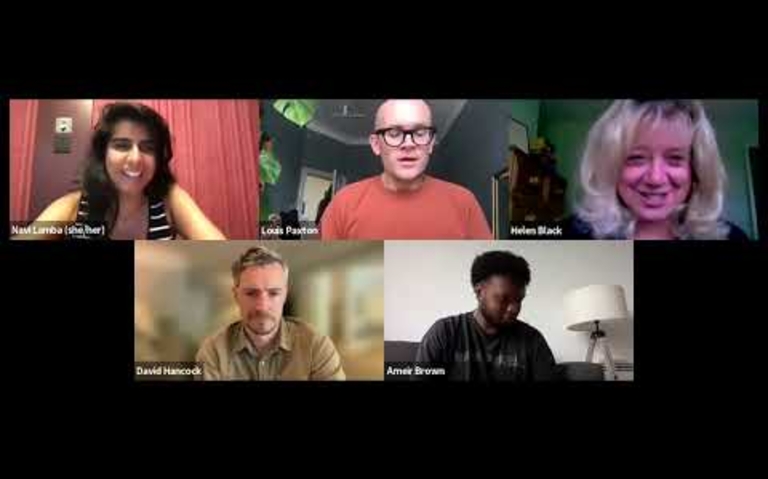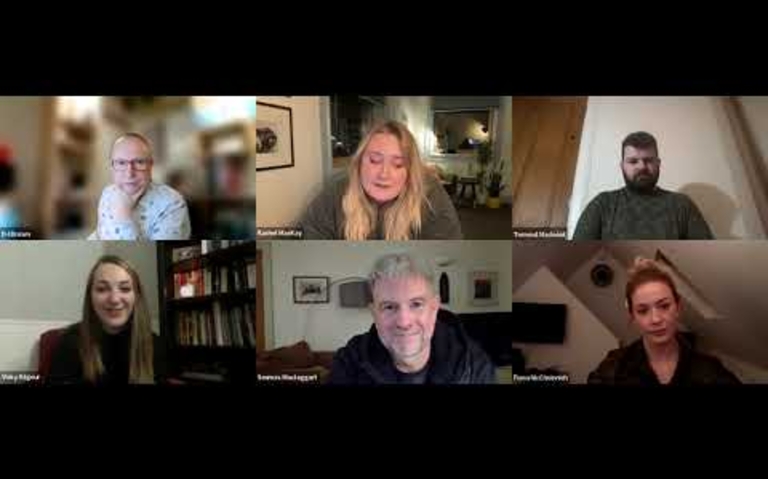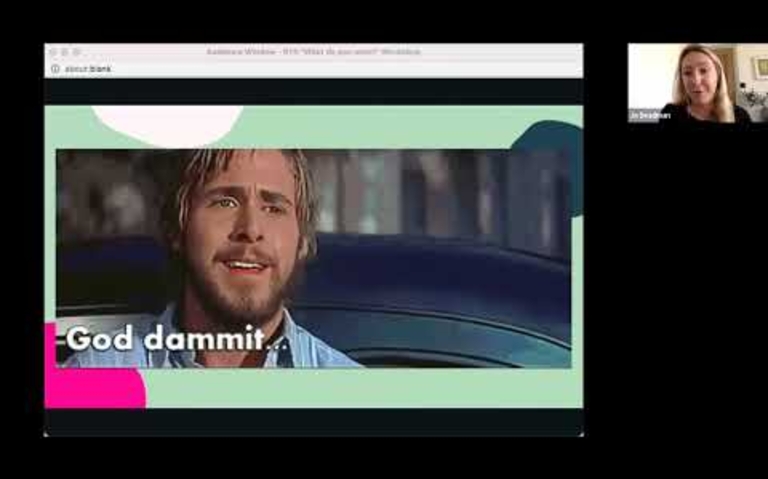Hughes, an award-winning screenwriter whose credits include The Girl, Five Days and Miss Austen Regrets, was quizzed on the craft of screenwriting by executive producer Ruth Pitts.
Hughes began writing drama while still working in factual. She reflected: "You can say that you want to be a writer until you are blue in the face, but you've got to actually do it."
Hughes on screenwriting
‘Everything you write is very personal; the thing that it shouldn’t be, is autobiographical. We’re writers, we’re not interesting people, we sit at home in a corner.’
‘The most important thing we do is write suspense. It doesn’t matter if it’s a romantic comedy or a thriller… the audience must care what happens next.’
‘It takes a lot of time [to write a screenplay] and you have to be prepared to put up with everybody else’s ideas – if you don’t want to work in a team, write a novel.’
‘I’d much rather do the research… writing the script is hell.’
‘In a screenplay… everything is significant and has to pay off… you cannot set a hare running without giving it a resolution. That makes it a very technical, draughtsman-like way of working… You don’t have the freedom that a novelist has, but nor do you have the solitude.’
Building suspense
Hughes played a clip from Five Days, a thriller broadcast on BBC One in 2007, in order to teach the audience of students two valuable lessons.
"I wanted to show just how few words we write", explained Hughes, after the clip of the abduction in Five Days was shown. "We don't have many words, [that part of the story] was all done visually."
Hughes then hammered home what she sees as a vital lesson to drama screenwriters: "The most important thing we do is write suspense. It doesn't matter if it is a romantic comedy, it doesn't matter if it is a thriller such as [Five Days], the most important question is, 'Does the audience care about what happens next?'"
Writer's block
A question from the audience brought up the issue of dealing with writer's block. Although Hughes doesn't believe that she gets traditional writer's block, she admitted to sometimes struggling with the finer logistics of the plot, such as needing to get a character from one place to another while maintaining the believability of the script.
"It is horrible and it is hellish, but there are people ringing you up asking where all their money has gone – so paradoxically it's easier, if you are being paid. If you are doing [writing] for yourself, you have to be so self-disciplined."
A master tip
Hughes's final tip for the audience was a piece of advice once given by Chekov, encouraging a young writer to "start on page two". She explained: "What he meant was, don't do preambles, don't set the scene, don't babble on. Jump in there. Jump into the action and start there."
Question & answer
Q Do you follow the advice of screenplay-structure writers such as Robert McKee?
A I do bear those kind of things in mind – but only because my producers are looking for them. I think they’re pretty much merit-free for television writers.
Q Do you sacrifice truth for drama?
A When I’m doing factual drama, there’s a lot of pressure to make those true stories fit the template of the Hollywood movie… but the way to make that happen is not to jettison the truth…
I try so hard to keep it as true
as possible and I’m to be found bleating constantly, especially with the Americans.
Q How do you write authentic dialogue?
A You’ve got do the work – listen and read a lot… You can put modern notions into 19th-century people, but they have to express them in an adequately 19th-century way.
If you did it realistically, we’d all be lost because their speeches are so long. It’s one of the problems with Villette: Brontë doesn’t give you a single line you could put in a film.
Q How do you overcome writers’ block?
A I don’t get writers’ block… it’s partly because, if you’re doing it for a living, then you’re writing for someone who is on the phone wondering where your script is. What you have is deadline issues… or knotty, specific plot problems.
Q Do directors interfere with your vision?
A You have to be prepared to give your baby up for adoption… to the producer, then to the director they hire. The director gives it up to the cast and the cast to the audience.
You lose control in a maternal way very early on… A director wants to put your story [on the screen] but in a way that will be most glorious for him… You give your baby up to them and you have to hope they care what you think.
Q Do you mind doing rewrites?
A Some writers are very difficult about rewriting, but most of us aren’t, because we know that’s the deal. I’ll do as many rewrites as it takes, as long as the script keeps getting better.
The RTS Student Programme Drama Masterclass was an RTS afternoon event held at the BFI Southbank London Friday 27th November, 2014 produced by Helen Scott. By Matthew Bell.

